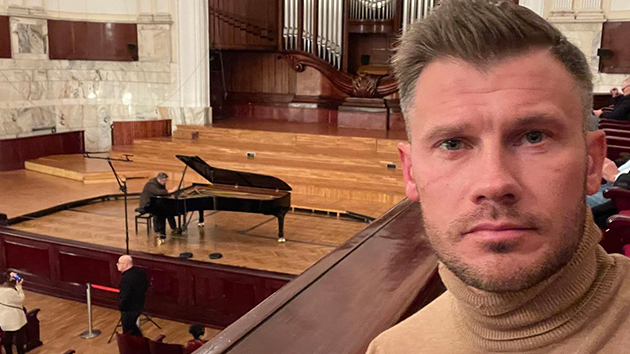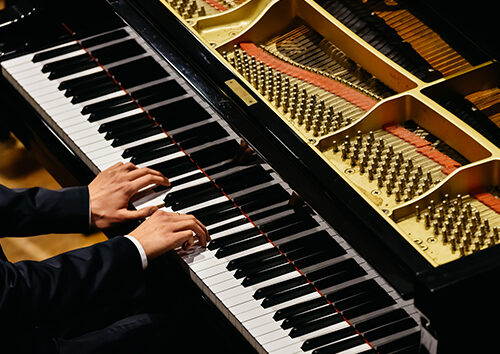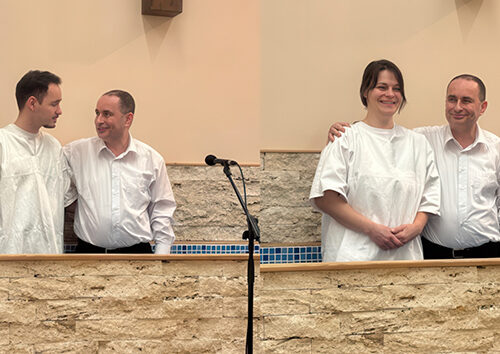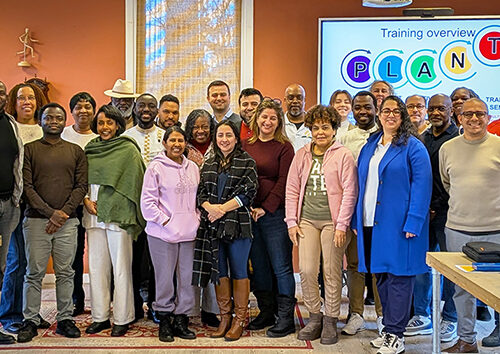27 September 2025 | Warsaw, Poland [Daniel Kluska]
In a world that has accustomed us to instant reactions and hasty judgements, the 19th Chopin Competition offers something completely different: attentive listening.
For three weeks, the Polish city of Warsaw becomes a place where the breath between phrases matters more than flashy news headlines. In the National Philharmonic Hall, where all the auditions take place, people with different views and backgrounds sit side by side and, for half an hour – the duration of one pianist’s audition – they breathe in a similar rhythm. Such a community of attention is rare today.
I also see a certain spiritual dimension here: mindfulness, silence, community, openness, and a willingness to experience something profound. Not the loud – though sometimes deafening – internet posts, but the practical dimension of life: entering the hall, taking a seat, relaxing, silencing your phone, and slowing down. Rubato (the momentary acceleration or deceleration of tempo) can become the backdrop for deeper reflection, and pauses can be moments of spiritual contemplation. Music reminds us that, beyond the daily prose of life, we also need the calm, lulling rhythm of beauty, conscious presence, and a sense of meaning.
This year’s 19th Chopin Competition marks the beginning of its centenary celebrations (the competition began in 1927). Eighty-four pianists from 20 countries competed (out of 642 applications, 171 were admitted to the preliminary round; ultimately, 162 performed), and according to the rules, no more than 10 people will advance to the final.
A Shared Language of Silence
In this year’s edition, 13 pianists from Poland perform, making the country one of the most numerous represented, alongside China and Japan. At the time of writing, four Poles have qualified for the second stage. Participants come from nearly 20 countries, including performers from Israel and pianists associated with Russia (competing as individual neutral artists).
In everyday debate, these country names can stir emotions; however, on the stage of the National Philharmonic, the common language remains rubato, silence, and properly articulated sound. This is not naivety, but experience: music temporarily breaks down our walls, reminding us that conflict, dispute, and war never have the last word.
Is this enough to defuse emotions? We do not know. What we do know is that, during these thirty minutes, the common language everyone understands is music, and there are fewer divisions. The Apostle Paul wrote:
“For he is our peace. He who has united the two and broken down the dividing wall of hostility in his flesh…” Letter to the Ephesians 2:14-16 (Ecumenical Bible)
Chosen, Not Earned
Every pianist’s journey to the Chopin Competition is long and exhausting. Does this resemble the journey of a Christian? Yes and no. A disciple of Christ practises faithfulness but does not “earn” salvation through their skills. Paul reminds us again of this simple, subversive paradox:
“For by grace you have been saved through faith.
It is not from yourselves, it is the gift of God.
Not by works, so that no one can boast.”
Letter to the Ephesians 2:8-9 (Ecumenical Bible)
The Discipline of Attention
The competition itself is strictly “Chopin-esque” – the programme is Chopin and only Chopin. Each stage requires different proportions: from miniatures in the first round to large forms in the third, and the finale is crowned with concerts accompanied by an orchestra. The schedule has been clearly laid out and, importantly, it has been emphasised that this is a marathon that needs both variation – what musicians call voltas, or alternative endings – and pauses for breath.
From this perspective, the Chopin Competition is full of Christian analogies: the successive stages resemble the rhythms of our spiritual growth; the preludes and études are like the first steps taken with God, and the nocturnes are like the evening prayer that closes the day. But in the Church, unlike on the concert stage, no one is eliminated for an uneven or inferior performance. In the Church, no one awards the ‘Grand Prix’ to the audience. The prize is not to be won; it is to be accepted.
And yet, the discipline of the pianists – silence, concentration, attention, and breath – should make us pause: how often do we have time for this in our Christian lives?
“Be still, and know that I am God,
exalted among the nations, exalted in the earth!”
Psalm 46:10 (Ecumenical Bible)
These words, “be still”, are the key to this October. Be still – despite the war in Ukraine. Be still – when heartbreaking images from the Gaza Strip reach us. Stop – when populism and Christian radicalism offer too easy answers and too harsh rhetoric. Stop – to hear the music, but above all, to hear other people.
People with very different views sit next to each other in the Philharmonic Hall: a Ukrainian woman next to a Pole, a Christian next to a Jew, a sceptic next to a fervent believer. And yet, for half an hour, they breathe in the same rhythm. Is this not a little parable about the Kingdom of God?

When the Doors Close
I have only been to the National Philharmonic once – on 27 November 2022 – for a recital by Grigory Sokolov, one of the most outstanding living pianists in the world. I travelled from Gdynia, where I live. I was three and a half minutes late. The doors to the hall were already closed; latecomers are only allowed in during applause or the interval, and there is no guarantee they will get the seat they booked. So I waited until the interval, learning the concert etiquette of attentiveness the hard way, listening to the performance on one of the televisions suspended in front of the hall.
Sokolov is known as an artist who performs only recitals (he has avoided orchestral concerts for years). His evenings are dimly lit, with maximum concentration and long series of encores – often up to six. In the end, I did make it into the hall and finally heard Sokolov play. That evening, he performed six encores.
Today, the question comes back to me: what if we are ‘late’ for the greatest event in human history – the return of Jesus Christ? The Philharmonic may close the doors of the concert hall, but the God of grace has not. In His parables, Jesus warns us not to delay our decisions, but today the “time of favour” continues.
For me, that evening was a lesson. Those who really want to listen come early – with an open heart, though not always immediately ready.
[Photos: joaquincorbalan / Envato Elements; Daniel Kluska].



